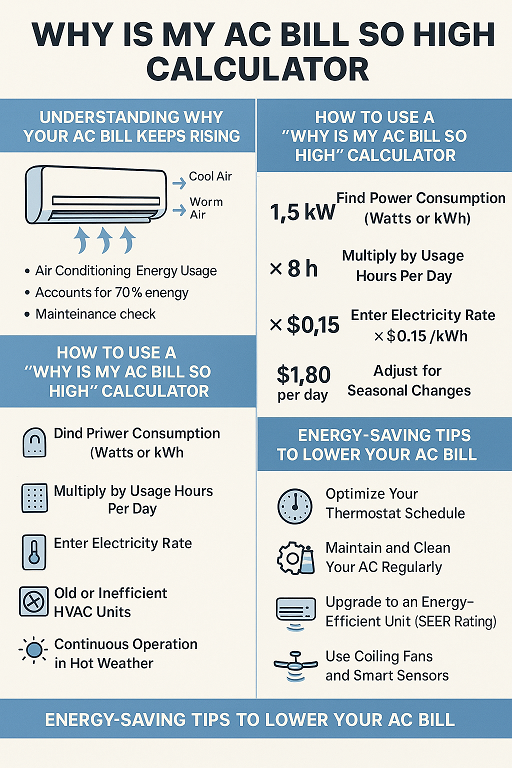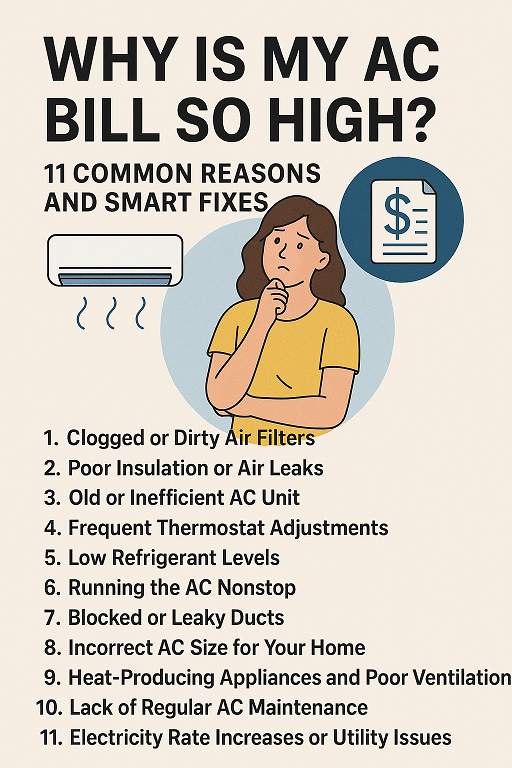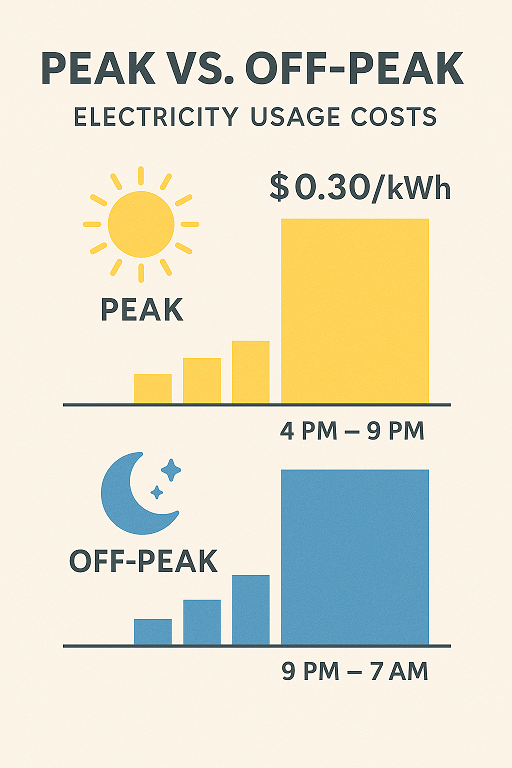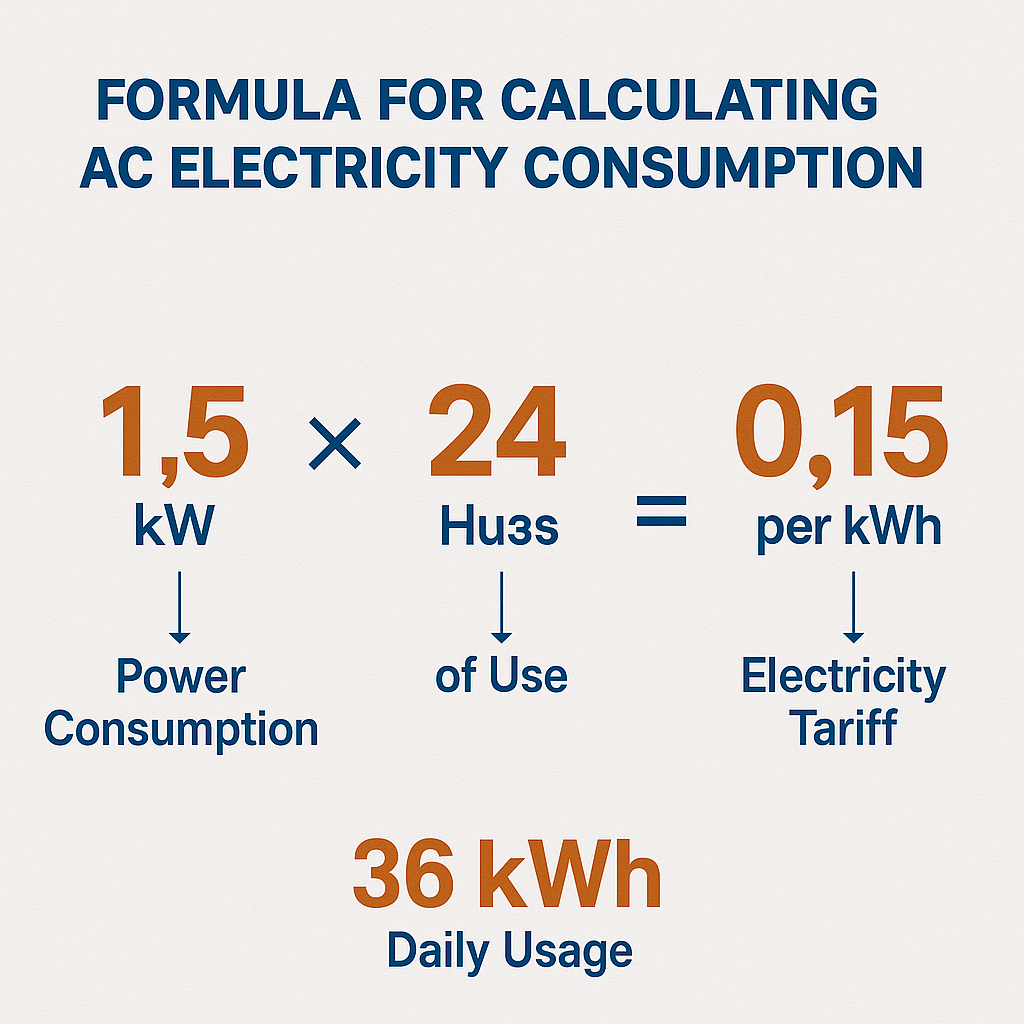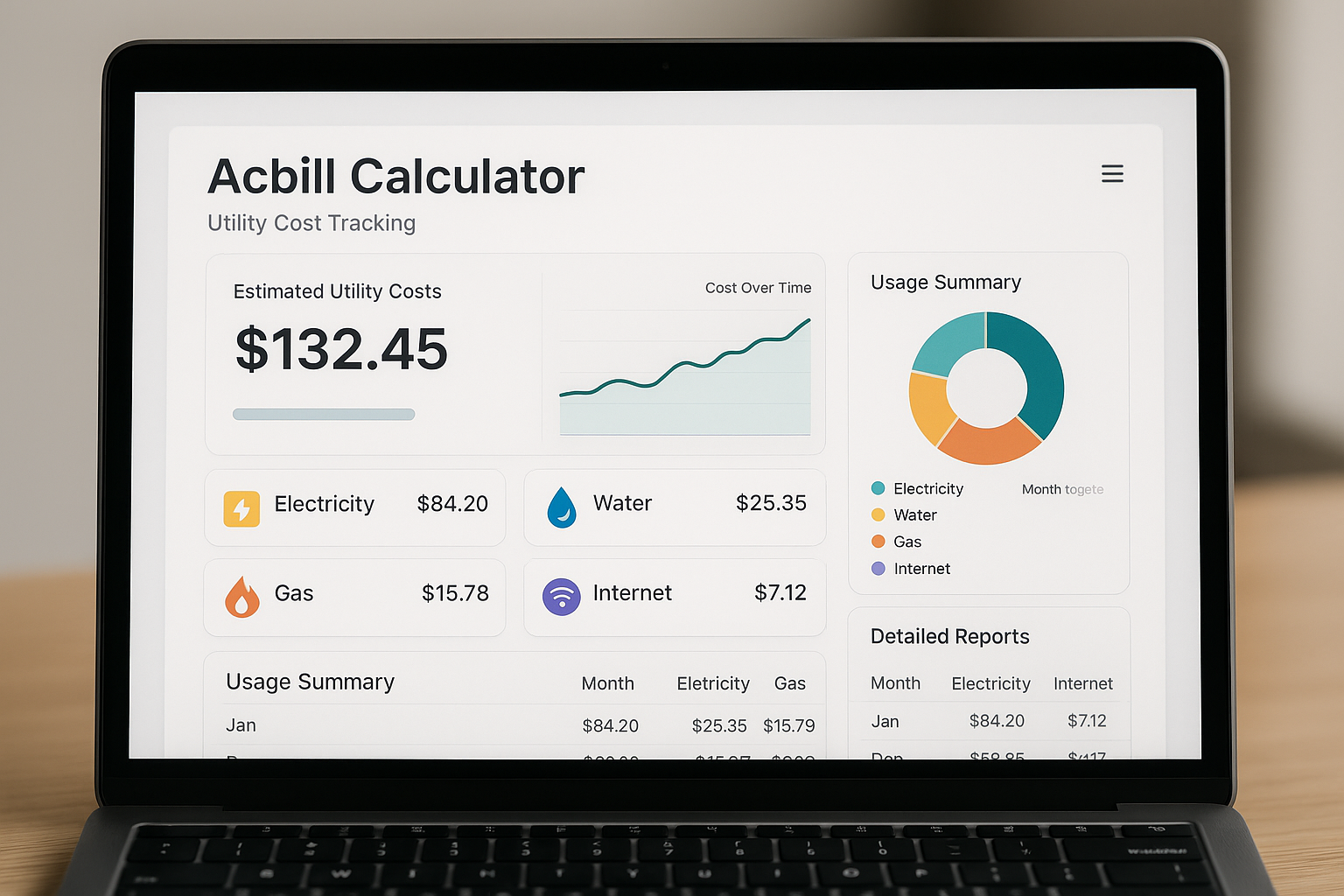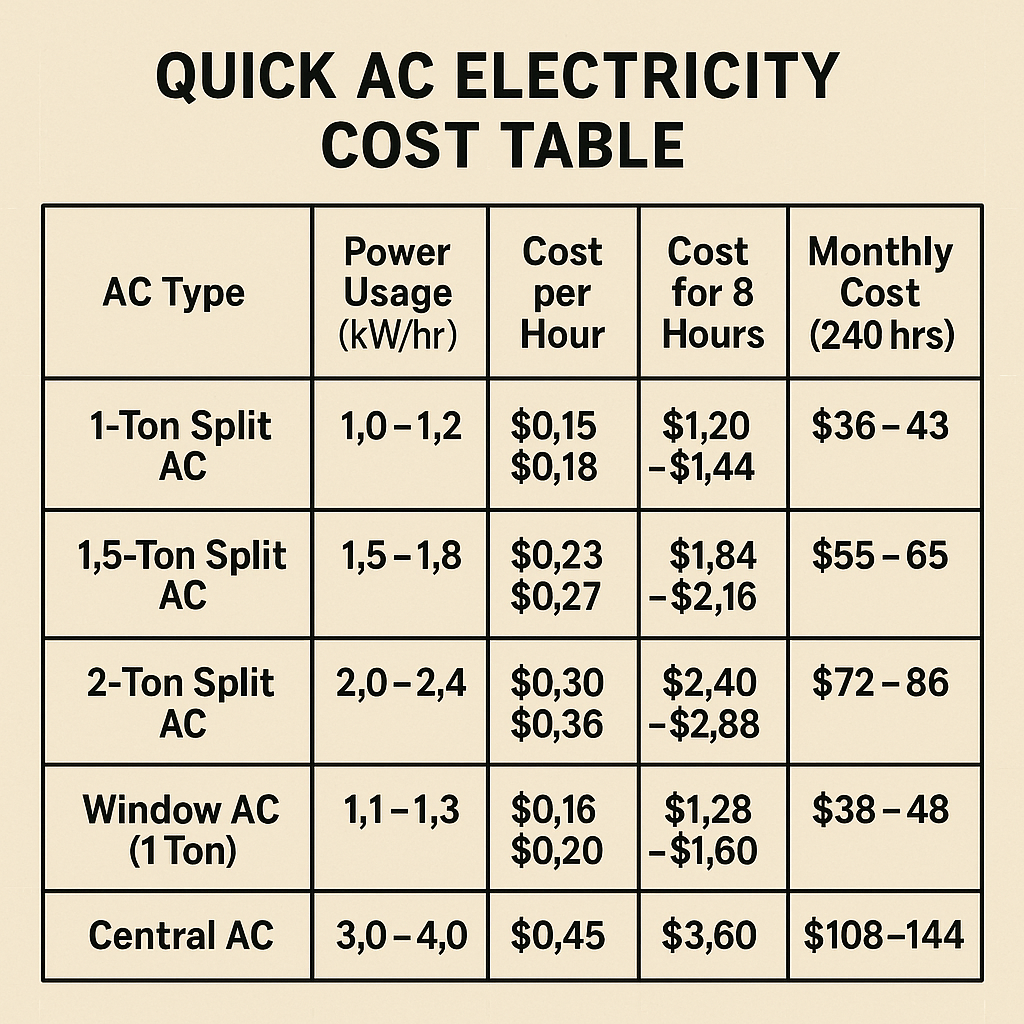
AC Electricity Usage FAQ: 20 Common Questions Answered
Introduction: Why AC Electricity Usage Matters
Air conditioning (AC) has become a necessity in homes, offices and commercial spaces. But one important question always arises: How much electricity does an AC consume? This is where the question of AC electricity consumption comes in - it provides answers to frequently asked questions related to cost, efficiency and saving money.
Do inverter ACs really save electricity, or is it too expensive to keep the AC on at night? This guide will dispel the myths and provide simple answers using facts.
Quick AC Electricity Cost Table
Here’s a simple breakdown of estimated costs for running different types of ACs (based on average electricity rates of $0.15/kWh):
AC Type | Power Usage (kW/hr) | Cost per Hour | Cost for 8 Hours | Monthly Cost (240 hrs)
1-Ton Split AC | 1.0 – 1.2 kWh | $0.15 – $0.18 | $1.20 – $1.44 | $36 – $43
1.5-Ton Split AC | 1.5 – 1.8 kWh | $0.23 – $0.27 | $1.84 – $2.16 | $55 – $65
2-Ton Split AC | 2.0 – 2.4 kWh | $0.30 – $0.36 | $2.40 – $2.88 | $72 – $86
Window AC (1 Ton) | 1.1 – 1.3 kWh | $0.16 – $0.20 | $1.28 – $1.60 | $38 – $48
Central AC | 3.0 – 4.0 kWh | $0.45 – $0.60 | $3.60 – $4.80 | $108 – $144
AC Electricity Usage FAQ
1. Does AC use a lot of electricity?
Yes, ACs are one of the biggest power consumers of households. A common split AC may consume 1-2.5 kwh/h [kilo watt hours] based on tonnage and efficiency.
2. How many watts does an AC use per hour?
A 1-ton AC has approximately 1000-1200 watts/hour and a 2-ton can have 2000-2400 watts/hour.
3. How much does it cost to run AC for 8 hours?
Depending on size and type between 1.20 and 4.80.
4. Does inverter AC save electricity?
Yes! Inverter ACs also regulate the compressor speed, which consumes as much as 30-40 percent less electricity than non-inverter models.
5. What is the average monthly AC electricity cost?
Moderate use (240 hours/month) will cost between $40 and 90 per AC unit.
6. Does AC fan mode use less electricity?
Yes, since only the fan is involved and not the compressor. It uses 70–80% less electricity.
7. Is it cheaper to keep AC on all day or turn it off?
When not in use, switching it off, it conserves more electricity. Running is a waste of time unless you exist in extreme conditions.
8. How does room size affect AC power usage?
An AC that is very small in a large room will take longer to run and it will consume more power. Never exceed AC tonnage to room size.
9. Does AC use electricity when off but plugged in?
Yes, but just a small standby (15w/h).
10. Which consumes more: window AC or split AC?
Split ACs tend to be energy efficient and need less energy to cool.
11. Does central AC use more electricity than portable AC?
Yes, central AC consumes 3-4 times more energy, however, it cools bigger rooms.
12. Can running ceiling fans reduce AC electricity usage?
Absolutely. Cool air is pumped by fans which means you can set AC higher and save bills by 15 percent.
13. Does AC use more electricity in summer than winter?
Yes, in summer the AC compressors operate more, which means that electricity is consumed more.
14. What star rating AC consumes less power?
AC with a rating of 5 can save up to 25 percent of the energy used by a 3-star model.
15. How much does AC electricity usage vary by tonnage (1-ton vs 2-ton)?
Compared to an AC of 1 ton, an AC of 2 tons will consume almost twice the amount of electricity.
16. Does AC dry mode save electricity?
Yes. Dry mode consumes less compressor work, resulting in a saving of approximately 1015 percent of energy.
17. Is inverter AC better than non-inverter for saving power?
Yes. In the long run, inverter ACs save a lot of money in electricity saving and they are more expensive to purchase.
18. How much electricity does AC use in 24 hours?
A 1.5-ton AC that runs continuously can use 3643 kWh/day, at approximately $5-6/day.
19. Can solar panels power an AC?
Yes, but you will require a sufficient number of panels (usually 68 panels in a 1.5 ton AC).
20. How to reduce AC electricity bills effectively?
- Set thermostat to 24–26°C (75–78°F)
- Use ceiling fans
- Seal leaks & insulate rooms
- Clean filters regularly
- Upgrade to inverter & 5-star ACs
Myths About AC Electricity Usage (Busted)
- Myth: AC at 16degC works faster to cool down
- Fact: AC cools at the same rate but lower settings will waste electricity.
- Myth: ACs that are bigger are always more energy efficient.
- Fact: Oversized ACs short-cycle, wasting energy
- Myth: Turning your AC on/off will make your bill go up.
- Fact: Turning off when not needed saves money
Conclusion: Smart Cooling Without Wasting Power
Your AC doesn't have to be a beast to spend money on. By selecting the appropriate tonnage, adopting inverter technology, and implementing smart usage patterns, you can enjoy comfort while staying within a manageable budget.
